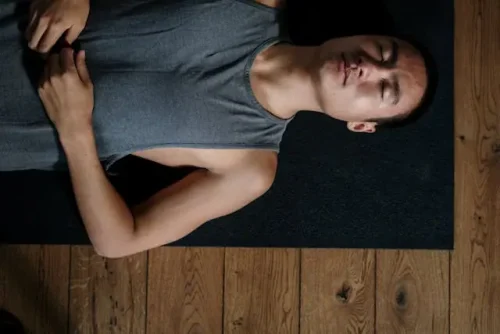
Healthy Habits That Stick in a New Environment
Starting over in a new place often feels overwhelming. Daily routines get interrupted, and it becomes harder to stick to the behaviors that once felt natural. Therefore, forming healthy habits that stick in a new environment takes more than good intentions. It depends on structure, surroundings, and smart strategies. So, a shift in location changes how cues and routines work. However, building consistency again needs patience and planning. That’s why this change can either break old habits or help form better ones. Instead of slipping into chaos, use the opportunity to reset routines with purpose. With the right steps, habit-building becomes easier and even enjoyable.
Let Your Environment Shape Your Routine
New surroundings can shift habits without warning, and the mind often follows the cues around it. That’s why setting up spaces with purpose matters. For example, create a meditation space in your new home to build focus and calm. It doesn’t need to be big—just quiet, clean, and easy to reach. Daily use reinforces the habit. When routines feel shaky, physical spaces offer structure. Even small changes help form new patterns. Arrange the space so it supports intention. Let your environment lead the behavior you want to grow. Consistency starts with clear signals.

Start Small and Keep Going
Big changes often feel exciting at first, but fade quickly. Long-lasting habits come from steady action. Start with simple tasks that take little time or energy. Even two minutes can begin a useful pattern. Choose one goal and stay with it daily. Over time, it becomes automatic. Avoid rushing into too much at once. That often leads to burnout or quitting. Instead, build slowly and track progress. Small wins give strong momentum. Focus on what can be done today, not everything at once. Each step builds trust in the process.
Let Your Space Work for You
Each room can send a message. A space designed with intention supports habits without extra effort. Link new routines to daily activities already in place. For instance, stretch after brushing your teeth or read after morning tea. These simple pairings help habits stick. Keep reminders visible—like a yoga mat near the door or a water bottle on the desk. This method works well when living alone for the first time, where fewer routines exist. Structure needs to be created, not inherited. Choose what belongs where based on goals.
Even moving furniture can reset behavior. Change the layout to highlight what matters most. A space should invite the habit you want to grow. Surroundings shape decisions more than willpower does. Also, you should keep tools and cues easy to reach. Small environmental choices have lasting effects on daily actions. Use the space as quiet support for consistency.
Plan Your Actions Before You Begin
Success often comes from clear decisions made early. So, instead of guessing what to do next, create a plan. Use short “if-then” statements to build clarity. For example, “If it’s 8 p.m., then I’ll stretch for ten minutes.” Each action becomes easier to follow when the timing feels predictable. Choose the same time daily and keep instructions simple. Clear steps remove hesitation and build rhythm.

Track Progress You Can See
A visual record builds motivation. Marking off a calendar or using a habit app adds a sense of progress. These small checks offer a reward and build confidence. Daily marks show effort, even on slower days. This kind of structure helps when adjusting to change. It also supports efforts to make connections when relocating to a new community. A tracker reminds the brain that effort counts. Patterns become easier to see and adjust. Motivation grows when progress is visible. Keep the tracker simple, clear, and easy to reach. Repetition builds strength.
Find Support and Protect Your Energy to Build Healthy Habits That Stick in a New Environment
Strong habits grow faster with structure and support. Use a few simple tools to stay on track:
- Find Accountability – Share goals with one person or a small group. Talking about progress builds focus and adds motivation.
- Reduce Daily Decisions – Plan meals, clothes, and workouts the day before. Fewer choices save time and protect energy.
- Celebrate Small Wins – Track progress and reward effort, not just results. Positive feedback keeps energy up and builds trust in the process.
Each step helps build rhythm. Habits become stronger when small victories feel real. Over time, the right system builds momentum. Choose tools that fit your life and adjust when needed. Energy flows better with fewer blocks. Success often comes from preparation, not pressure. Keep goals clear and steps simple. Reliable support and structure make daily choices feel lighter. Use both to stay focused and steady, even when change feels hard. Small actions done often lead to real results.
Keep Going, Even After a Break
Missing a day doesn’t mean starting over. Everyone skips steps sometimes. Breaks are normal, especially during transitions. Instead of quitting, pause and restart with care. Focus on what worked before and return to that. For example, starting a garden after moving can restore a sense of peace and purpose. Nature offers structure and steady rewards. Small tasks like watering or planting build rhythm again. Habits grow best with patience. Progress doesn’t disappear after one slow day. Begin again, even with one small step.

How to Build Good Routines Anywhere
Habits shape each day, especially when life feels unfamiliar. In a new setting, it helps to build routines that bring stability. Creating healthy habits that stick in a new environment supports mental clarity and physical well-being. It also makes daily life smoother and more rewarding. Small decisions start to feel easier when they come from structure. With the right mindset and tools, strong habits can form faster than expected. Starting fresh offers the chance to be intentional. Rather than waiting for routines to return, choose what happens next. Change becomes a chance to grow, not a setback.
Read More: 6 Motivation Fitness Tips for Beginners
Frequently Asked Questions
Q: How long does it take to form a new habit in a different environment?
A: Research shows it can take anywhere from 18 to 66 days to form a habit, depending on consistency and complexity.
Q: What’s the best way to stay motivated after moving?
A: Start with small, clear goals and track your progress daily. Visual reminders and rewards help maintain motivation.
Q: Can changing my space really help build new habits?
A: Yes. Environmental cues have a strong influence on behavior, so intentional setup can reinforce good routines.
Q: How do I get back on track if I break a habit?
A: Don’t wait, restart the next day with one simple step. Focus on progress, not perfection.
Q: What’s a good first habit to build after relocating?
A: Begin with one routine that adds structure, like a morning stretch, journaling, or a set bedtime.

